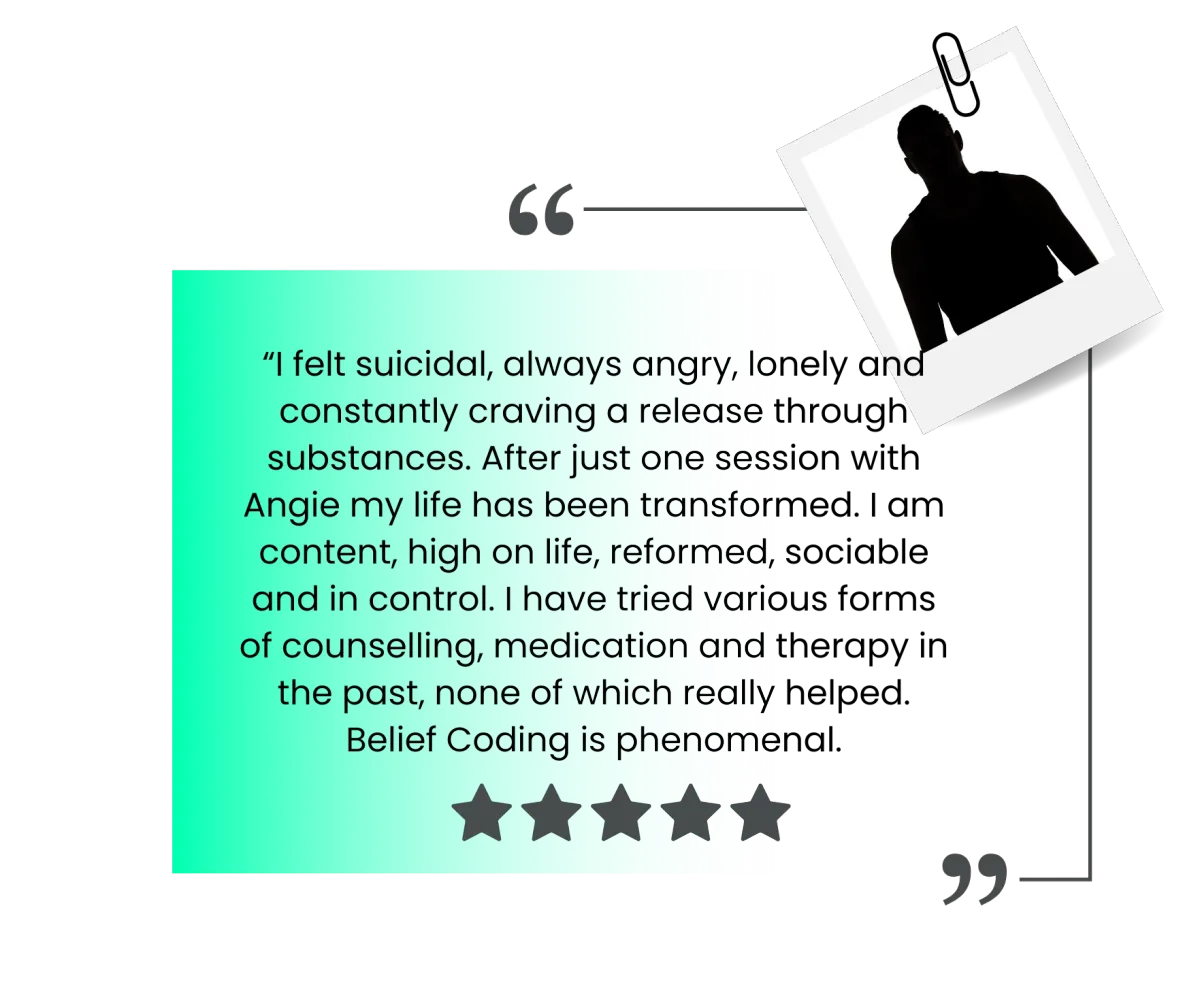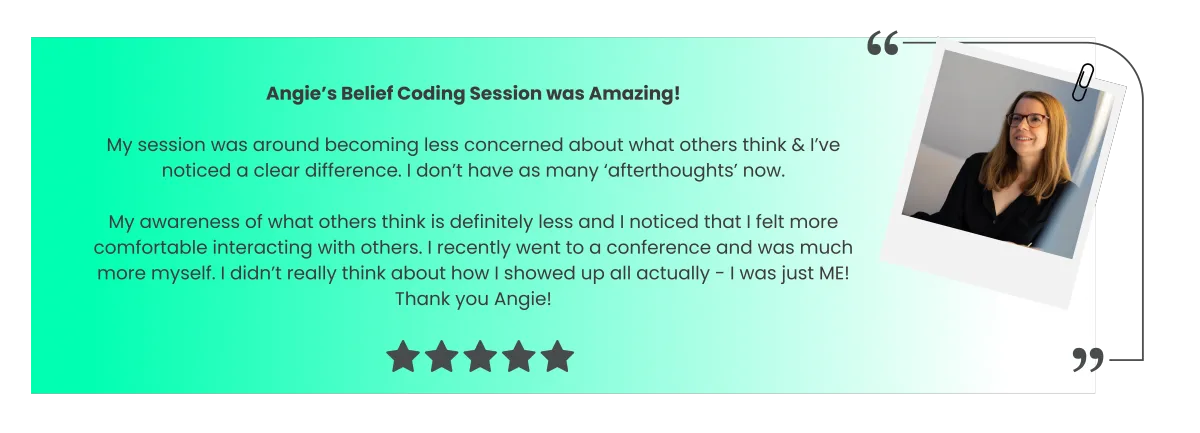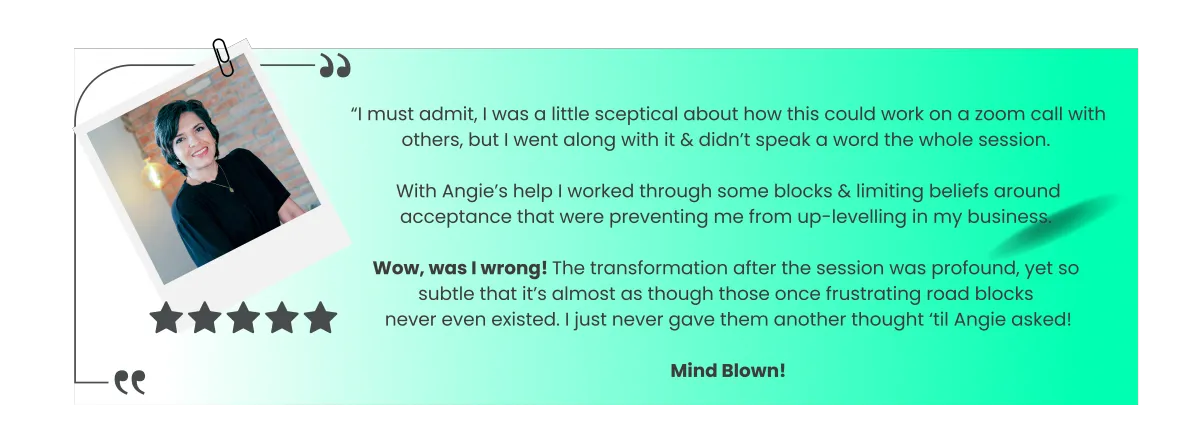FREQUENTLY ASKED QUESTIONS
Will I lose control or be hypnotised?
No, Belief Coding® is a fully conscious process. You remain in control and actively participate the entire time.
I’ve tried everything else – will this really work for me?
Many clients report that Belief Coding® has succeeded where previous traditional therapies have fallen short because, unlike other methods it gets straight to the root cause & works directly with the subconscious.
Does it take a long time to see results?
Clients usually experience noticeable shifts after just one session, with long-lasting results. Transformation doesn't need to be a long drawn out process.
What if I uncover something I’m not ready to face?
Your subconscious will only reveal what you're ready to deal with in that moment. The process is designed to be safe and supportive.
Isn't this just for people who are struggling with their mental health?
Not at all. While Belief Coding® is effective for addressing trauma, it isn't just for fixing problems. it's just as powerful for boosting confidence, overcoming self-doubt, improving relationships, and breaking through any area where you feel stuck. It’s also beneficial for growth, empowerment, and stepping into the best version of yourself. Success on the outside doesn’t always match how we feel internally. Belief Coding® helps bridge that gap, addressing hidden blocks that may be holding you back from enjoying life fully.
What if I get emotional during the session?
It's common to become emotional, but the process is designed to provide a safe space for those emotions. Many clients feel a huge sense of relief afterwards.
Can Belief Coding® help with physical symptoms?
Yes! Many clients notice improvements in physical discomfort or ailments that have no clear medical cause. The mind and body are deeply connected, and by addressing limiting beliefs or emotional blocks, physical symptoms can often ease or disappear altogether.
I’m going through menopause – could this help with how I’m feeling?
Absolutely. Belief Coding® can help you release emotional weight, boost your confidence, find clarity and balance hormones – helping you feel more like yourself again.
Is this a spiritual or 'woo woo' method of healing?
No. Belief Coding® is backed by neuroscience and clinical evidence, activating multiple areas of the brain to rewire long-term memory and create lasting change.
It uses elements of different techniques including: Positive Psychology, Meditation, Neurolinguistic Programming (NLP), Cognitive Behavioural Therapy (CBT) and Kinesiology.









